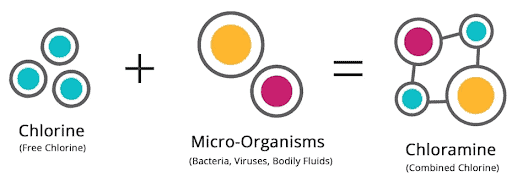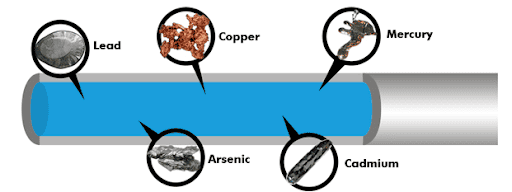Clean and safe drinking water is essential for our health and well-being. However, water sources can be vulnerable to various contaminants, including chemicals that can have adverse effects on human health. Here are some common chemicals to be aware of.
Chlorine and Chloramine
Chlorine and its derivative chloramine are commonly used to disinfect water and kill bacteria. While they are necessary for water treatment, high levels of chlorine or chloramine can produce an unpleasant taste and odour in drinking water.

Lead
Lead contamination is a significant concern, especially in older homes with lead pipes or plumbing fixtures. Lead exposure can cause a range of health issues, particularly in children. That’s why new sewer pipe lining Solihull from a specialist such as https://www.wilkinson-env.co.uk/sewer-repairs-drain-lining-concrete-cutting/drain-repairs/drain-repairs-solihull could be a good idea.
Arsenic
Arsenic is a naturally occurring element found in some groundwater sources. Prolonged exposure to high levels of arsenic in drinking water can lead to serious health problems, including cancer.
Fluoride
Many water treatment facilities add fluoride to drinking water to improve dental health. However, excessive fluoride levels can lead to dental fluorosis, a cosmetic issue that affects tooth enamel.
Volatile Organic Compounds (VOCs)
VOCs are organic chemicals that can evaporate into the air and dissolve in water. Common VOCs include benzene and toluene, which can come from gasoline, solvents, or industrial processes. Long-term exposure to certain VOCs may pose health risks.
Pesticides and Herbicides
Agricultural runoff and the use of pesticides and herbicides can introduce chemicals like atrazine and glyphosate into water supplies. These chemicals can affect human health, and their presence in drinking water is a concern.
Nitrate and Nitrite
Nitrate and nitrite are chemicals that can enter water supplies through agricultural runoff and septic systems. High levels of these compounds in drinking water can be harmful, especially for infants.
Pharmaceuticals
The presence of pharmaceuticals in water supplies, due to improper disposal or excretion, is a growing concern.

Image credit
Heavy Metals
Besides lead, water sources can contain heavy metals like mercury, cadmium, and chromium. Prolonged exposure to heavy metals through drinking water can lead to various health issues.
